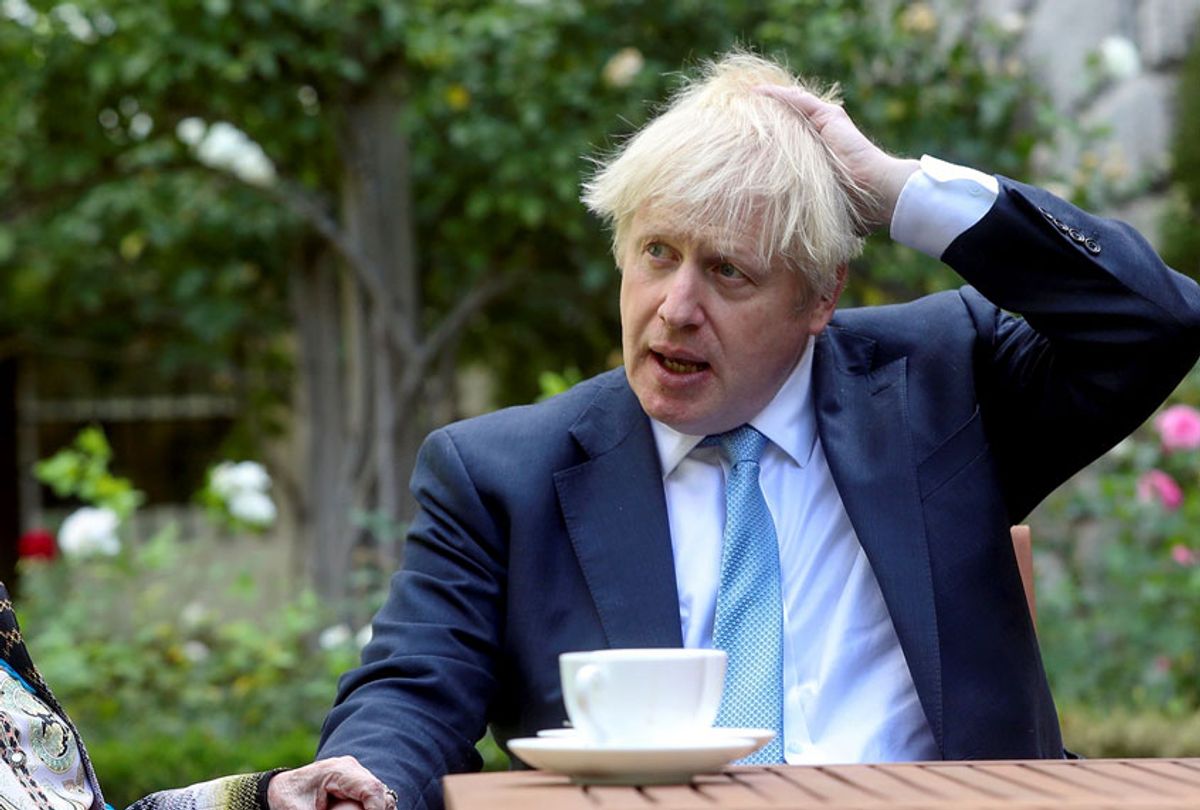British Prime Minister Boris Johnson has suffered a third major political setback in two days after his call for snap elections failed to gain the necessary votes in Parliament to move forward.
While 298 members of Parliament voted for snap elections and only 56 voted against them, Johnson would have needed 434 MPs to back his call, according to CNN.
In the first shellacking of his hard-line Brexit approach, Johnson lost control of the negotiating process when 21 of his fellow Conservative Party members joined the opposition to force a vote on a bill that would block a do-deal exit from the European Union. He then failed to stop that bill from advancing. The bill, which would force Johnson to ask the EU for a further extension if Brexit terms are not able to be reached by the end of October, is expected to become law next week.
In response to the latest setback, Johnson lashed out at Labour Party leader Jeremy Corbyn.
"I think he has become the first, to my knowledge, the first leader of the opposition in the democratic history of our country to refuse the invitation to an election, Mr. Speaker," Johnson said after being defeated in his call for snap elections. "I can only speculate as to the reasons behind his hesitation. The obvious conclusion is — I’m afraid — that he does not think he will win."
"The country must now decide whether the leader of the opposition or I go to those negotiations in Brussels on the 17th of October to sort this out," the prime minister added.
On Tuesday, Johnson claimed to reporters that he did not want to force elections.
"I don’t want an election. The public don’t want an election," he said. "But if the House votes for this bill tomorrow, the public will have to choose who goes to Brussels on Oct. 17 to sort this out and take this country forward."
Johnson's setbacks have undercut his threat Monday to push the U.K. toward Brexit with or without a deal from the EU.
"As we come to that Brexit deadline, I am encouraged by the progress we are making," Johnson told reporters. "In the last few weeks ,the chances of a deal have been rising, I believe, for three reasons: They can see that we want a deal, they can see that we have a clear vision for our future relationship with the EU (something that has not always perhaps been the case) and they can see that we are utterly determined to strengthen our position by getting ready to come out regardless, come what may. But if there is one that can hold us back in these talks, it is the sense in Brussels that MPs may find some way to cancel the referendum or that tomorrow MPs will vote with Jeremy Corbyn for yet another pointless delay."
He added, "I don't think they will. I hope that they won't. But if they do, they will plainly chop the legs out from under the U.K. position and make any further negotiation absolutely impossible. And so I say, to show our friends in Brussels that we are united in our purpose, MPs should vote with the government against Corbyn's pointless delay. I want everybody to know there are no circumstances in which I will ask Brussels to delay. We are leaving on the 31st of October, no ifs or buts. We will not accept any attempt to go back on our promises or scrub that referendum."

Shares